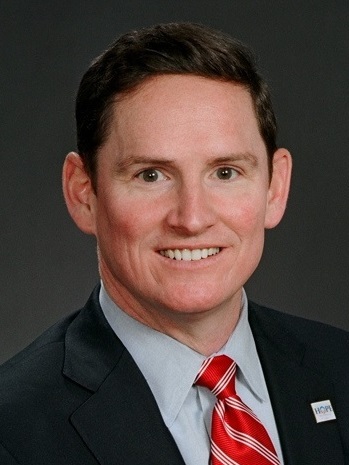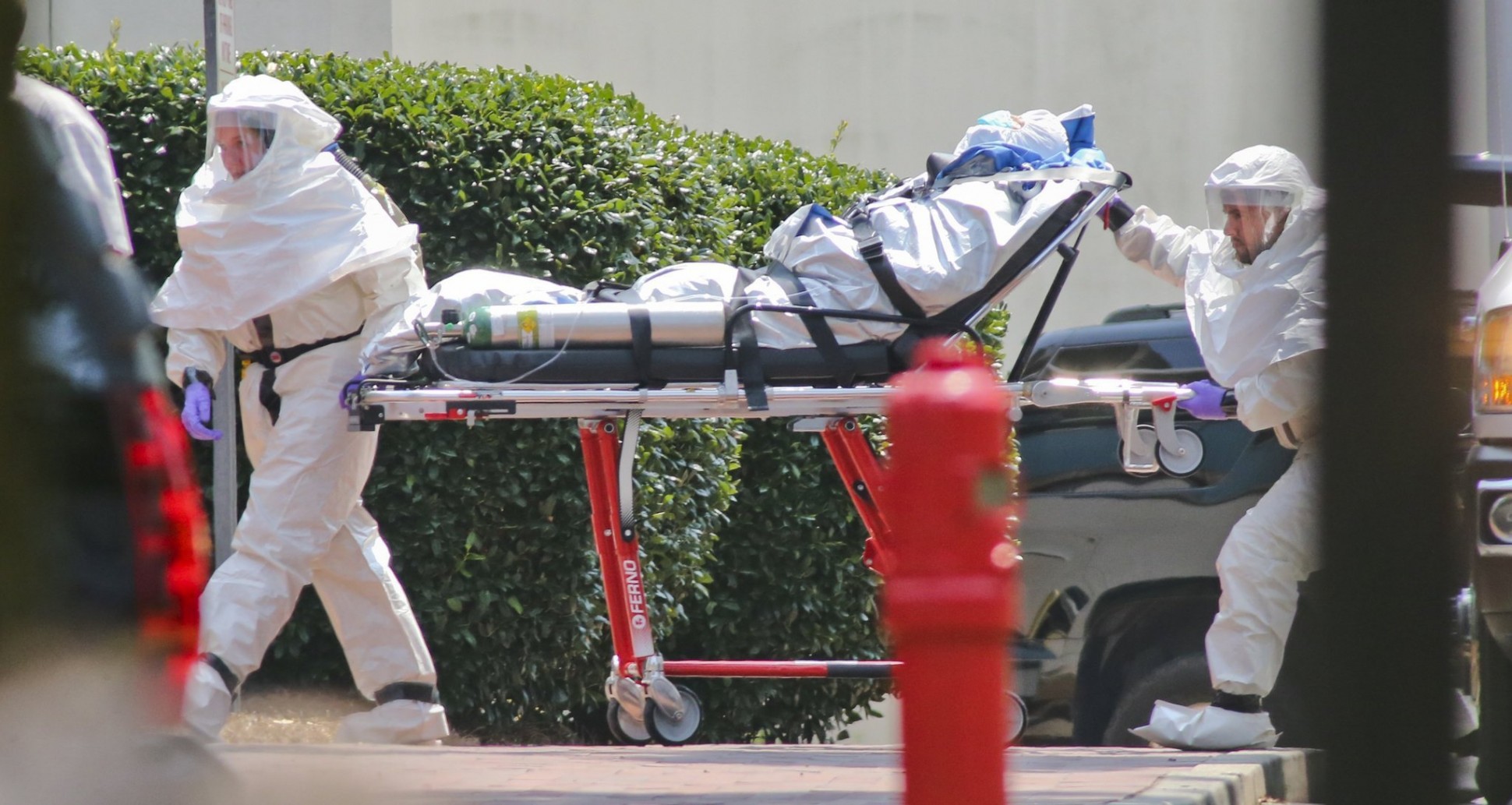Dallas County Judge Clay Jenkins, working with county officials, will enact a control order limiting travel for people who have been exposed to Ebola, Jenkins said Wednesday, calling the situation in Texas a “very serious public health Ebola crisis.” Travel will be restricted on public transportation, including buses and airliners, and further restrictions are being explored by local and state governments.
“I’m not considering it. I’m going to do it,” said Dallas County Judge Clay Jenkins, speaking of a legal order restricting travel for health care workers involved in the treatment of Thomas Duncan, who died of Ebola last week in Texas Presbyterian Hospital.
“We have the ability to have our county medical director sign a control order. I’m also working with  the state–‘one team, one fight’–to join us in that, because some of the people under the order don’t live in Dallas County. They live in the surrounding counties.
the state–‘one team, one fight’–to join us in that, because some of the people under the order don’t live in Dallas County. They live in the surrounding counties.
“At a minimum,” Jenkins said, “it will follow the CDC guidelines on traveling by public conveyance.”
“This is a fluid and very serious public health Ebola crisis,” said Jenkins. He said that his office was doing something to stop travel–putting in place a control order that would restrict people from getting on public transportation. He was also working with higher levels of government to look at “other public venues where movement would be restricted.”
Jenkins clarified the risks people faced with regards to travel.
“It’s not a problem for you to ride next to a diseased contact in a car–if it were, I wouldn’t have driven people who were disease contacts to their new home. But it is a problem if you are in an enclosed area like an airplane on a cross-country flight and someone gets symptoms, and then they have body fluids that get on other people. And so, restricting long-distance buses or public transportation–there may be other sorts of venues where you’re kind of locked into an area. So that’s what we’re looking at.”
Jenkins stated that it was “very disappointing” to him that someone with a fever, such as Amber Vinson was reported to have had, would have been allowed on an airplane. “It is unacceptable that that happened.”
Jenkins spoke about the problems that he had been dealing with in Dallas, as well as the evolving challenges. “I feel good about what we thought was the scary problem last week, and that is Eric Duncan for five days with Ebola in my community, where I’ve got to go find everybody that touched him. We did that. Now we’ve got a breach at the hospital.”
Jenkins made the point that the health care workers were not at fault. “That’s a procedure, protocol or supervision problem–Those nurses are heroes.”
“This new problem with the hospital causes us to fight a two-front war,” said Jenkins.
Jenkins said that he thought that they had achieved a significant level of control over the hospital breach as well.
The current problems officials were dealing with, Jenkins said, were the two families of the infected health care workers, as well as the 75 people who were away from the patient population.
Of those 75 hospital workers, most were at home on furlough, Jenkins said. Officials were working on a situation in which those exposed people could choose whether to stay at home, or, if they were concerned about family members, they could transfer to a safer location.
“Two options. You can stay at home under the orders we’re putting there. Or you can go to a place where you’ll be cared for.
Some of the exposed health care workers, however, continue to treat Amber Vinson, because they have already been exposed, Jenkins said.
Jenkins stressed that those people affected by the ban had done nothing wrong.
“These are not criminals. These are heroic health care professionals. They are not trying to get out into the community and cause any harm. And they don’t need to be vilified, and their children don’t need to be vilified. If an order is in place, I expect it to be followed, and we would use the law to enforce it, but that won’t be necessary.
“These are heroic health care professionals who just need some guidance on what they can and can’t do in a very difficult time in their life.”
Jenkins current interest was, he said, keeping the two and a half million people who live in Dallas safe.
“My job is to correct mistakes as fast as I find them, whoever made them. ‘One team, one fight.’ To find those mistakes. We’ll worry about whose fault it was later. Let’s get it corrected. Let’s make sure nobody else gets on an airplane. Let’s move forward and keep this community safe.”
